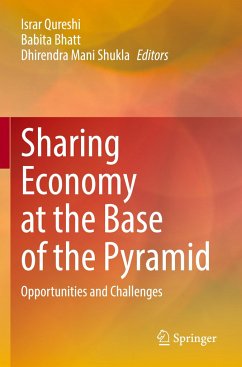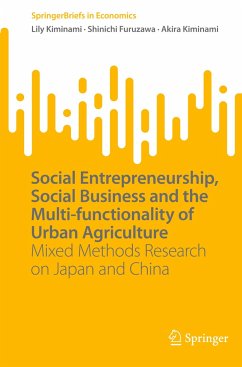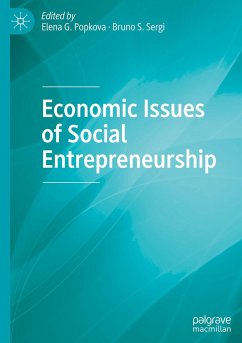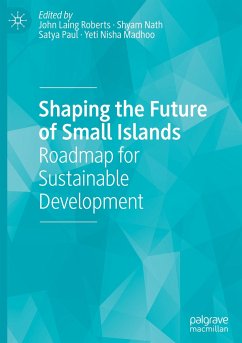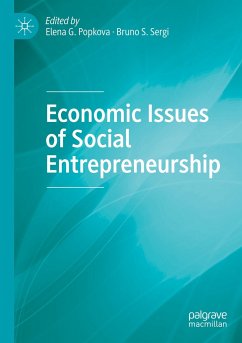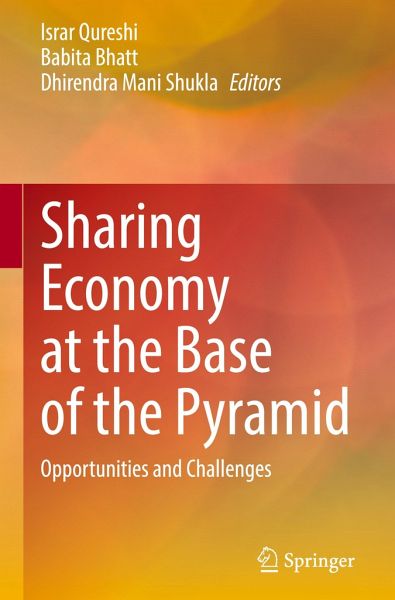
Sharing Economy at the Base of the Pyramid
Opportunities and Challenges
Herausgegeben: Qureshi, Israr; Bhatt, Babita; Shukla, Dhirendra Mani

PAYBACK Punkte
65 °P sammeln!
This book explores how the sharing economy models present opportunities and also pose challenges in achieving sustainable development at the base of the pyramid.Through a 3S Framework (sharing, socialization, and social intermediation) and Reformative-Transformative classification, this book demonstrates how sharing economy models offer the potential for more inclusive and sustainable development.The book includes case studies on sharing economy models that offer products and services for free or at prices more affordable than traditional options, while also finding ways toward economic sustai...
This book explores how the sharing economy models present opportunities and also pose challenges in achieving sustainable development at the base of the pyramid.
Through a 3S Framework (sharing, socialization, and social intermediation) and Reformative-Transformative classification, this book demonstrates how sharing economy models offer the potential for more inclusive and sustainable development.
The book includes case studies on sharing economy models that offer products and services for free or at prices more affordable than traditional options, while also finding ways toward economic sustainability and inclusive growth. This book identifies how local resources, community social capital, and bricolage could be leveraged in the development of sharing economy models that take into account the specificities of particular communities while ensuring that the solutions can be quickly modified and replicated. Further, this book highlights that sharing economy modelsleverage the digital revolution to take advantage of cheaper computational capacity and global connectivity, while rapidly adapting to engage with those that have less digital literacy at the base of the pyramid.
This edited book aims to present analyses of sharing economy models at the base of the pyramid, identifying characteristics that can be particularly important for sustainable development and barriers that would need to be overcome to realize its full potential. The chapters in this book are contributed by a wide range of academics and scholars who are experts in the field.
Through a 3S Framework (sharing, socialization, and social intermediation) and Reformative-Transformative classification, this book demonstrates how sharing economy models offer the potential for more inclusive and sustainable development.
The book includes case studies on sharing economy models that offer products and services for free or at prices more affordable than traditional options, while also finding ways toward economic sustainability and inclusive growth. This book identifies how local resources, community social capital, and bricolage could be leveraged in the development of sharing economy models that take into account the specificities of particular communities while ensuring that the solutions can be quickly modified and replicated. Further, this book highlights that sharing economy modelsleverage the digital revolution to take advantage of cheaper computational capacity and global connectivity, while rapidly adapting to engage with those that have less digital literacy at the base of the pyramid.
This edited book aims to present analyses of sharing economy models at the base of the pyramid, identifying characteristics that can be particularly important for sustainable development and barriers that would need to be overcome to realize its full potential. The chapters in this book are contributed by a wide range of academics and scholars who are experts in the field.



